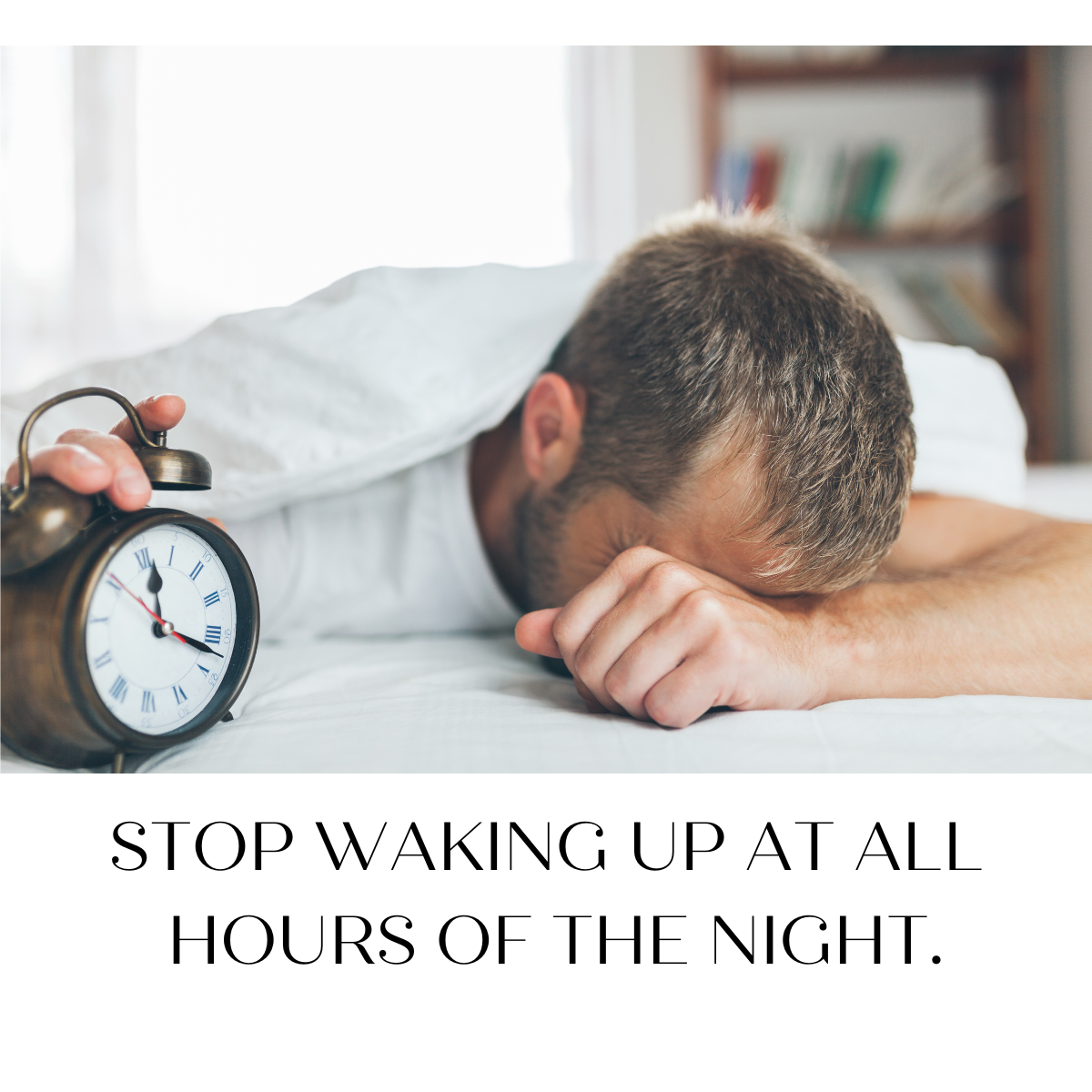INSOMNIA
What is insomnia?
Insomnia is a general term that describes the inability to fall asleep.
The inability to get a good night’s sleep can result from waking up in the middle of the night and having trouble getting back to sleep.
Insomnia can be a temporary, occasional, or chronic problem.
What are the symptoms of insomnia?
Common symptoms of insomnia include difficult falling back asleep when you wake up, having to rely on sleep aids or alcohol to sleep, difficulty concentrating during the day, and daytime drowsiness, irritability, or fatigue.
What causes insomnia?
Insomnia can be caused by a variety of factors. Some are psychological
and some are environmental. Circadian rhythms, the biological clock that tells the body when to eat or sleep, can also affect the quality of sleep.
Shift work can cause a dramatic stress to the circadian rhythm, which
can take months to correct. Some other common causes of insomnia include:
• food allergies
• seasonal allergies
• anxiety
• psychological stress
• poor digestion
• poor diet (especially sugar, spicy foods, and caffeine)
• pineal dysfunction (the gland that produces melatonin)
What can I do to help with my insomnia?
There are some things you can do to help with insomnia.
Be sure to see a doctor if you think you have insomnia.
• Avoid drinking caffeine after 10 AM.
Some people are more sensitive to caffeine than others.
Caffeine can also remain in the body for up to 20 hours.
• Avoid sugar, especially in the evenings.
Sugar causes an emergency stress reaction in the blood that can disrupt your sleep.
• Make sure your bedroom is dark and cool.
Heat and light can and do interfere with sleep schedules.
Try installing a black-out curtain on your bedroom window.
• Avoid strenuous activity before bedtime.
Exercise is good for you, but it might keep you up at night if you go for a run right before bed.
Additionally, try to avoid arguments or stressful activity before you are about to sleep.
• Put down the technology! Avoid anything with a backlight, like phones,
tablets, and laptops. Try books or soft music to help you fall asleep.
- Story Time. Do you remember when you were a child and someone would read you a story to get
you to sleep? Well it might be one of the best ways to get to sleep. Listening to a audio book, or
podcast. They should be simple stories, with nothing that will stimulate the brain. The reader should
have a smooth easy to listen to voice, which lulls you to sleep.
Can Herbs Help With Insomnia?
There are several herbs that are commonly used to help with insomnia:
- Valerian root: Valerian has been used for centuries as a natural sleep aid. It can help to reduce the time it takes to fall asleep and improve sleep quality.
- Chamomile: Chamomile tea is often recommended for its calming effects. It can help to reduce anxiety and promote sleep.
- Lavender: Lavender has a soothing scent that can help promote relaxation and improve sleep quality. It can be used in the form of essential oil, applied to pillows or diffused in the bedroom.
- Passionflower: Passionflower is a herb that has been used for its sedative effects. It can help to calm the mind and improve sleep.
- Lemon balm: Lemon balm has a calming effect and can help to reduce anxiety. It can be consumed as a tea or taken in supplement form.
It's important to note that while herbs can be helpful for some individuals, they may not be effective for everyone. If you're experiencing persistent insomnia, it's recommended to consult with a healthcare professional for a proper diagnosis and treatment plan.
One breathing technique that can help promote relaxation and aid in falling asleep is called the 4-7-8 technique:
- Find a comfortable position in bed and close your eyes.
- Take a deep breath in through your nose for a count of 4.
- Hold your breath for a count of 7.
- Slowly exhale through your mouth for a count of 8.
- Repeat the cycle for a few minutes, focusing on the rhythm of your breath.
This technique helps activate the body's relaxation response and can be a helpful tool for calming the mind and preparing for sleep. Remember to breathe deeply from your diaphragm and maintain a slow, steady pace. It may take some practice, but with consistency, it can become a beneficial part of your bedtime routine.
"References"
Blumenthal, Mark, and Werner R. Busse. The Complete German Commission E Monographs. Austin, TX: American Botanical Council, 1998. Print.
Brown, Don. Herbal Prescriptions for Better Health: Your Everyday Guide to Prevention, Treatment, and Care. Rocklin, CA: Prima Pub., 1996. Print.
Fuerst, M. L. "Insomniacs Give up Stress and Medications." JAMA Network. 28 Jan. 1983. <http://jama.jamanetwork.com/article.aspx?articleid=382466>.
Hart, Carl L., and Charles Ksir. Drugs, Society, & Human Behavior. New York: McGraw-Hill, 2011. Print.
Weil, Andrew. Natural Health, Natural Medicine: A Comprehensive Manual for Wellness and Self-care. Boston: Houghton Mifflin, 1990
https://www.sleepfoundation.org/sleep-hygiene/best-breathing-exercises-for-sleep#:~:text=Keeping%20your%20mouth%20closed%2C%20inhale,before%20returning%20to%20normal%20breathing.
https://health.clevelandclinic.org/4-7-8-breathing/
https://www.ncbi.nlm.nih.gov/pmc/articles/PMC6361823/

